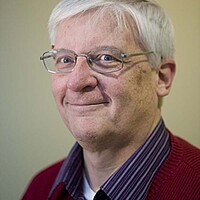2013 Torchlight Prize honors grass-roots US community groups
Loading...
When people are in extreme need, their ability to help themselves may be severely limited. Finding food and shelter alone may be an overwhelming task. In these cases, outside aid groups must take the lead and offer a vital helping hand.
But most poor people in the United States aren't in crisis; they're struggling, but they have a capacity and desire to help themselves. The Torchlight Prize, a project of the Family Independence Initiative now in its second year, recognizes homegrown groups that are finding their own unique ways of solving community problems.
“Too often in this country, low-income families are stereotyped as shiftless swindlers or helpless victims,” says Mia Birdsong, vice president of the Family Independence Initiative (FII), in announcing this year's winners. “The Torchlight Prize is changing this narrative. It showcases the knowledge, skills, and initiative that exists in under-resourced communities, and the tremendous contributions they make to our country as innovators, entrepreneurs, and leaders.”
Four grass-roots community groups around the US will each receive a no-strings-attached prize of $10,000 over the next two years.
"The Torchlight Prize really shows us that there are solutions being developed and tested in communities," Ms. Birdsong said in a Monitor interview last week. The idea, she says, is to inspire other communities to act by showing, "Hey, look what's possible if we work together."
For a dozen years the nonprofit FII has emphasized this grass-roots, family-led approach to improving the lives of low-income families.
The idea? The movers and shakers should be those in need themselves, with the FII acting only as a resource. If a charitable group such as the FII announces that it will "invite the community to the table," that sounds like the community members are still only guests at the party, Birdsong says. "They really should be the hosts. It's not about including them, or asking them. It's about the leadership that exists in families and communities, and us following them."
In the dance with FII, the community group takes the lead. "Over and over again, what we find is that if you stop directing people, and you create space for their own leadership to emerge, they move forward," she says. "We've demonstrated this in four cities across the country with probably a thousand families … thousands of folks."
This year's Torchlight Prize winners, announced today, are Camp Congo Square in New Orleans; Freedom Inc., in Madison, Wis., Somos Tuskaloosa, in Tuscaloosa, Ala.; and VietUnity, in Oakland, Calif.
Shaka Zulu cofounded Camp Congo Square with his wife, Naimah Zulu. The summer camp program opened in 2006 after hurricane Katrina had devastated the city. The camp meets in New Orleans' historic Congo Square, a place where centuries ago native Americans and African-American slaves would gather on Sundays.
The campers learn about their heritage and the city's history, as well. They study art, reading, writing, and math, and learn respect for the city's many cultural and ethnic traditions.
“One of our students … has really used the camp experience to make a very positive impact on his life…," Shaka Zulu writes in an email. "Ngozi McCormick has now become an example of what can come from the positive experience of the Camp … he has purchased land for a business and a home, and he also teaches what he learned at Camp Congo Square to his nephews and started his own performance group. (And he’s only in his early 20s!) He has become a role model in his community among young people and we are proud to say that we at Camp Congo Square along with his parents played a role in giving him the confidence and information to be an impressive young adult.”
The FII's founder, Mauricio Lim Miller, was honored in 2012 with the John D. and Catherine T. MacArthur Foundation's "genius award" for his work in helping low-income working families – who often struggle in isolation – join together to build self-sufficiency.
The Torchlight Prize received its name from the Freedman’s Torchlight, an early African-American newspaper published in New York before slavery was abolished.
Of this year's four winners, only Freedom Inc. has registered itself as an official nonprofit organization. The others are still operating as small informal groups. Some of their minuscule budgets can be measured in the hundreds of dollars, Birdsong says.
That's one reason the $10,000 prize is given over a two-year period, she says. "We don't want to mess them up" with too much money all at once, she says. The groups want to keep close to their roots "of, for, and by the community."
• For more on the Family Independence Initiative, visit http://www.fiinet.org.








